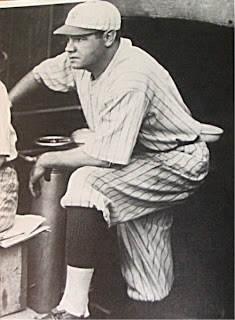by Bruce Wayne Sullivan
After ten years of being a published book author,.I have
learned a few tips along the way that may save you a lot of heartache and
money. There are two routes into the world of publishing: self publishing, which
would most likely be through a vanity publisher, and traditional publishing. I
would first like to operationally define the two types of publishing. A vanity
publisher is one who charges a fee for services and this means any kind of
service that the vanity publisher provides, including, but not limited to,
editing, photo design, changes in manuscript after submission, proof reading,
etc. In short, a vanity publisher is one who requires payment for services
rendered.
A traditional publisher does not charge a fee for anything.
They edit, design, do photo ops, font set and any other service your book will
need to make it attractive in the market. Traditional publishers are trying to
sell books to the public. They are not in this to make their income on selling
to the authors. A real traditional publisher does not even charge you for
author copies albeit some may call themselves traditional publishers and charge
for author copies and this may be the only charge at the end of the process.
However, they should let you know in the contract if there are any fees
involved, even costs to you for books.
If there is nothing in the contract about a fee to the
author when the last stage is reached and the book is ready for publication,
then a sudden charge appears out of nowhere, beware! This is a scam unfolding!
Let me just warn you up front, it is VERY difficult sometimes to tell the
sharks from the Guppies and let me assure you, there are far more sharks in the
tank than Guppies. If you get stuck with a deal like this, whatever you do,
don’t give them any money! I know, I just got it in this same situation. While
I am writing about this, let me also warn you not to sign any contract beyond a
year, because you may have to wait out the end of the contract to avoid the
scam should one emerge from out of the shadows.
If you have money then you can hire an attorney to void the contract and
get out of it before the year deadline is up. Can you imagine what horror would
ensue if you signed a six year contract under these type of circumstances? In
addition, there are not many traditional publishers who pay author draws any
more. If you find one who does, Hallelujah for you!
Lastly, there is a great watch dog agency that is extremely
helpful when trying to find a legitimate publisher. It is called Predators and
Editors. They list the publishers and issue warnings concomitant the ones that
are not legitimate; although their list is not exhaustive, it includes volumes
of agencies and publishers. They are also very good about answering any
questions you have through email. Predators and Editors has been my life line
over the years. A great vanity publisher that I had an excellent experience
with was Createspace.com. Good luck with your publishing, and remember to keep
your eyes wide open and listen to your gut feeling.
____________________________________________________________________________________
Bruce Wayne Sullivan is a native of Jackson, Mississippi. He completed his undergraduate work at two private schools in Mississippi. His concentration was in history and social science. He attended the University of Memphis and earned his Master's degree. He’s a Licensed Professional Counselor, National Certified Counselor and a Clinically-Certified Forensic Counselor with more than a decade of experience in mental health care and treatment. Bruce is the author of Up From the Ruins: Based On a True Story, Refections from the Other Side, Vodka Tonics for the Soul. His website is www.brucewaynebooks.com


































